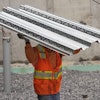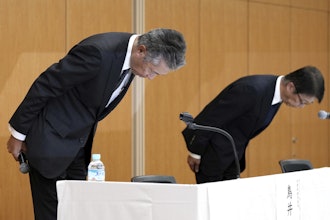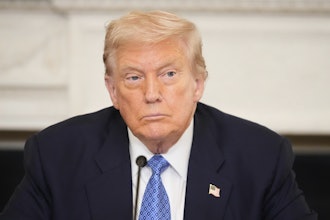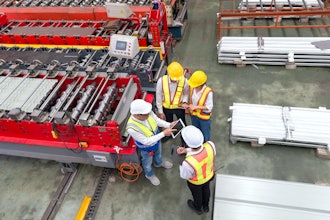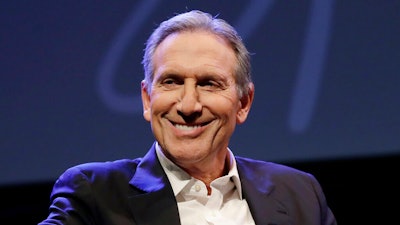
SILVER SPRING, Md. (AP) — Starbucks founder and new interim CEO Howard Schultz announced Monday that the coffee chain was suspending its share repurchase program to “invest more profit into our people and our stores.”
The pivot in strategy comes just three weeks after Starbucks announced that Schultz, who bought the company in 1987 and led it for more than three decades, would be taking over the company's top role until it found a permanent CEO. Since that announcement, analysts and experts have speculated that Schultz was being brought back to help the company fight a rising worker rights campaign that has seen six of its stores voting to unionize since December, with at least 140 more in 27 states filing petitions for union elections.
Two weeks ago, baristas and other employees at a Seattle Starbucks voted to unionize, the first such vote in the city where Starbucks originated. Starbucks has 9,000 company-owned stores in the U.S.
Schultz's blog post on Monday was filled with references to “partners" — what the company calls its employees. “My first work is to spend lots of time with partners,” Schultz wrote. “To lift up voices.”
In his previous time with the company, the 68-year-old Schultz successfully fought attempts to unionize Starbucks’ U.S. stores and roasting plants. Starbucks had to reinstate fired workers or pay to settle labor law violations numerous times under Schultz's leadership in the early 2000s.
Last year, the National Labor Relations Board found that Starbucks unlawfully retaliated against two Philadelphia baristas who were attempting to unionize. The NLRB said Starbucks monitored the employees’ social media, unlawfully spied on their conversations and ultimately fired them. It ordered Starbucks to stop interfering with workers’ right to organize and offer reinstatement to the two workers.
More recently, on March 15, the NLRB issued a complaint against Starbucks alleging that district and store managers in Phoenix spied on and threatened workers who supported unionizing. The complaint says Starbucks suspended one union supporter and fired another.
In a November letter to employees, posted just before the first unionization votes at three stores in Buffalo, New York, Schultz said he tried to create the kind of company that his blue-collar father never had the chance to work for.
He recalled the trauma of his family having no income after his father suffered a workplace injury, and said that’s why Starbucks has benefits like health care, free college tuition, parental leave and stock grants for employees.
“No partner has ever needed to have a representative seek to obtain things we all have as partners at Starbucks. And I am saddened and concerned to hear anyone thinks that is needed now,” Schultz wrote.
Schultz is holding a town hall with employees on Monday.
Late last year, Starbucks announced that it was committing to a $20 billion share repurchase and dividend program to return profits to investors. It's not clear how much of that figure would have gone to share repurchases.
Shares in Starbucks fell more than 3% in premarket trading and are down more than 20% since the beginning of the year.
Starbucks announced on March 16 that Schultz was stepping in to replace retiring CEO Kevin Johnson.



